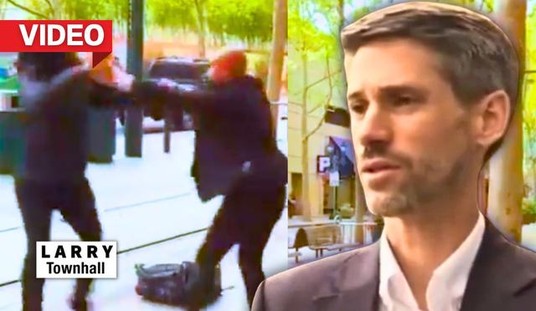After the U.S. Supreme Court issued a 5-4 decision Wednesday that threw out a cap on the total amount wealthy donors can give to federal candidates in an election season, Democrats and self-proclaimed do-gooders cried foul at the prospect of more big money's tainting Washington politics. Federal law continues to cap individual contributions to congressional candidates at $5,200, but the McCutcheon v. Federal Election Commission decision eliminated the $48,600 cap on the total individuals can contribute to candidates and the $74,600 cap on donations to political committees.
An online New York Times story announced, "The ruling, issued near the start of a campaign season, will change and very likely increase the already large role money plays in American politics."
Stop, please. The Center for Responsive Politics' OpenSecrets.org estimates that GOP biggie Sheldon Adelson and his wife bulldozed $93 million into conservative super PACs in 2012. Does anyone inside the Beltway really believe that special interests have been holding back and that now that they can give $5,200 to more than nine candidates, the big money is really going to roll out?
"If Citizens United opened a door, today's decision, we fear, will open a floodgate," Justice Stephen Breyer proclaimed, speaking for the four dissenting justices. He's righteous, but he's wrong. I agreed with the 2010 Citizens United v. FEC ruling -- which found that corporations and unions have a First Amendment right to give unlimited cash to independent expenditure campaigns -- because I believe in free speech.
That said, Citizens United was a floodgate; McCutcheon is more like a door chain that stands to keep more money in more regulated operations. Without the $123,200 ceiling on contributions, big donors will be able to donate more money directly to parties and candidates, as opposed to independent efforts that give plutocrats a supersize role in elections.
White House spokesman Josh Earnest told a gaggle of reporters, "I think Justice Breyer summed up the (administration's) disappointment rather cogently in his argument when he said that taken together with Citizens United, 'today's decision eviscerates our nation's campaign finance laws, leaving a remnant incapable of dealing with the grave problems of democratic legitimacy that those laws were intended to resolve.'"
Recommended
How disappointed the administration must be. Earnest was on a plane headed for a Michigan appearance that dovetailed nicely with President Barack Obama's scheduled speeches at two Democratic National Committee fundraisers in Chicago. According to The Associated Press, the first event was a private roundtable discussion of 25 supporters who contributed up to $32,400. The second was a $10,000-per-fat-cat dinner reception held at a private home.
American Federation of Teachers President Randi Weingarten denounced the McCutcheon decision in this statement: "The avalanche of money spent on elections would be better spent creating jobs, improving our neighborhood public schools, fixing our disintegrating infrastructure and building a better future for our children." According to OpenSecrets.org, the AFT was the 12th-largest political donor group on its list of "heavy hitters." From 1989 to 2014, the organization donated $37 million to political candidates. The National Education Association placed third, with $59 million that could have been spent creating jobs and improving schools.
"All it does is take away people's rights, because as you know, the Koch brothers are trying to buy America," Senate Majority Leader Harry Reid said of the decision. If Reid is worried about big money's taking away people's rights, he should have denounced one of OpenSecrets.org's top 10 donors. Thing is, six of the top 10 heavy hitters donate overwhelmingly to Democrats; the other four, including Goldman Sachs, are bipartisan check cutters. Koch Industries, way back in place No. 59, donated 91 percent of its $18 million to Republicans.
"Californians were recently reminded what happens when sensible limits on political spending are cast aside," was the reaction of Leila Pedersen, policy coordinator at Common Cause California. Funny. San Francisco's $500 contribution limit per mayoral candidate didn't keep Leland Yee, now a state senator on paid leave, from ending up on an FBI criminal complaint. An undercover agent somehow donated $5,000 to Yee's mayoral campaign. Money always finds a way.






















Join the conversation as a VIP Member